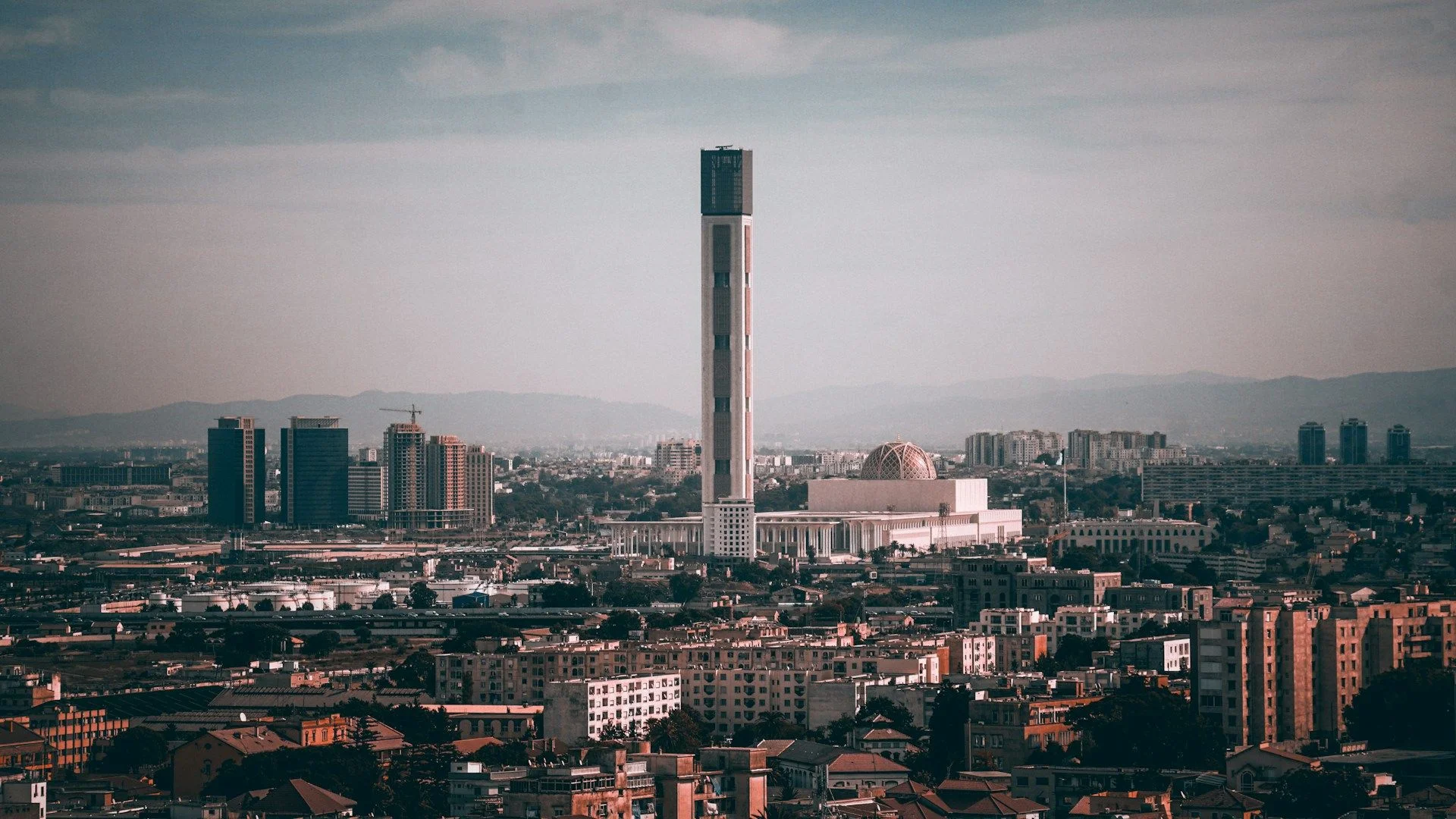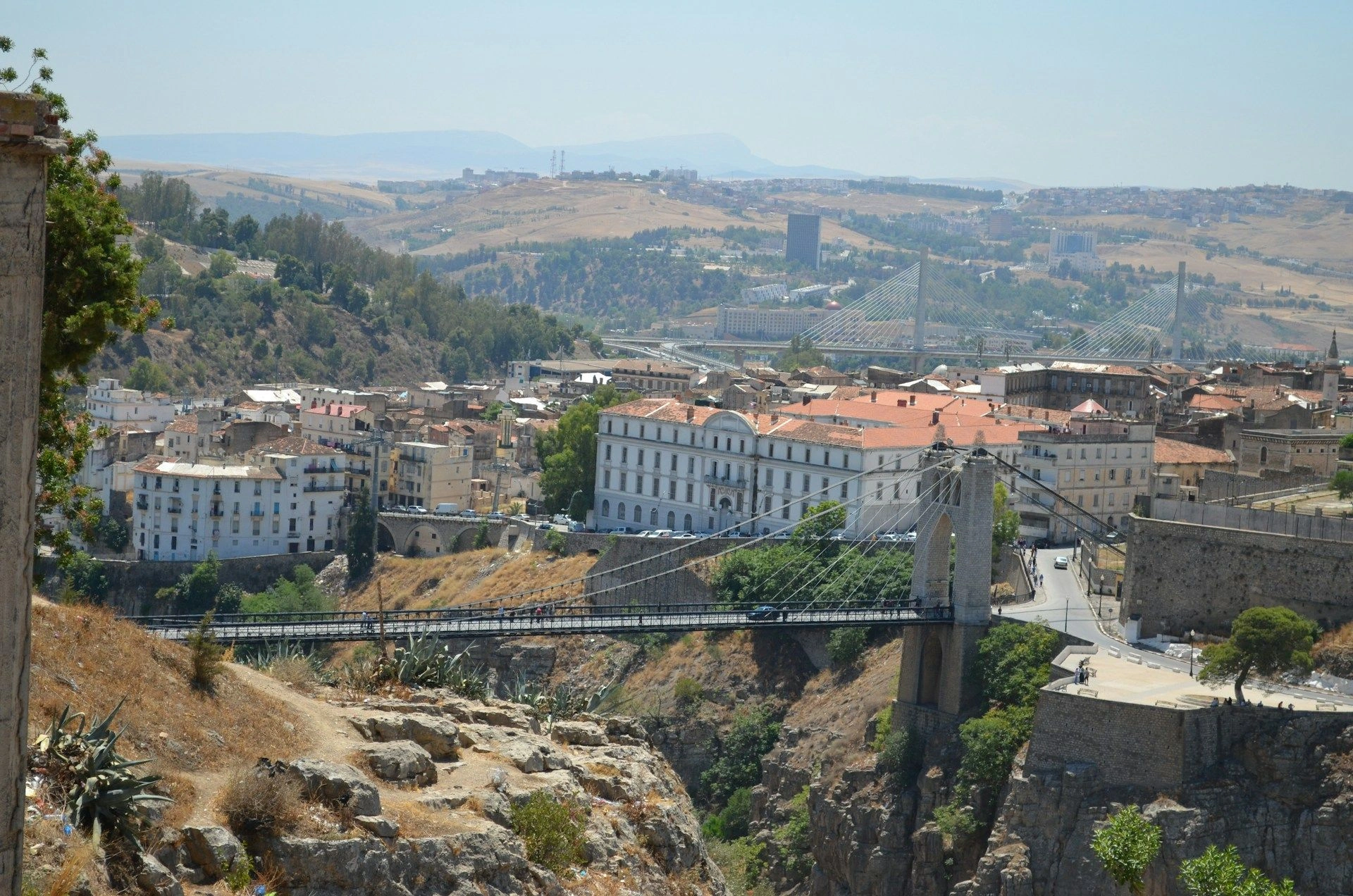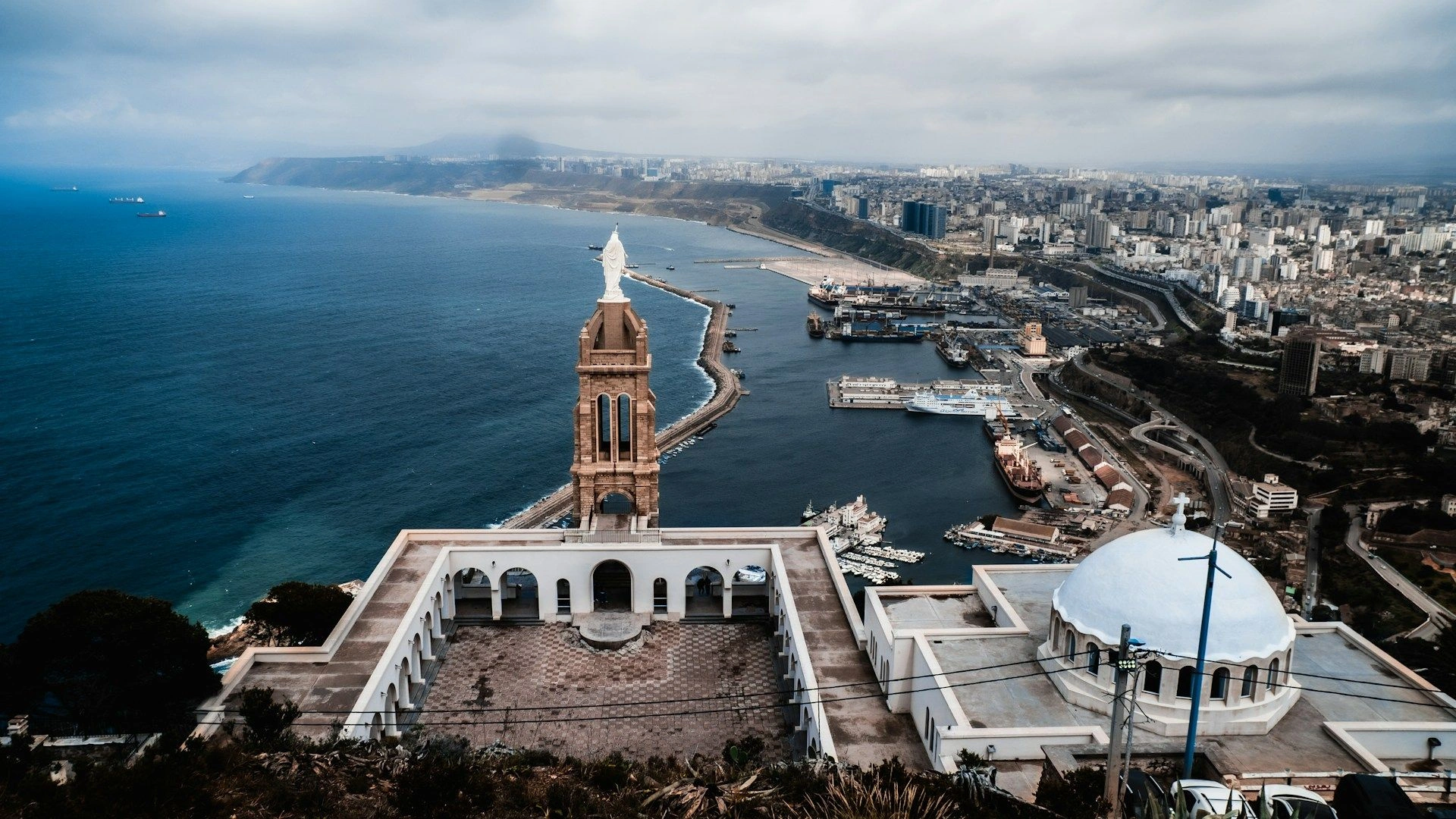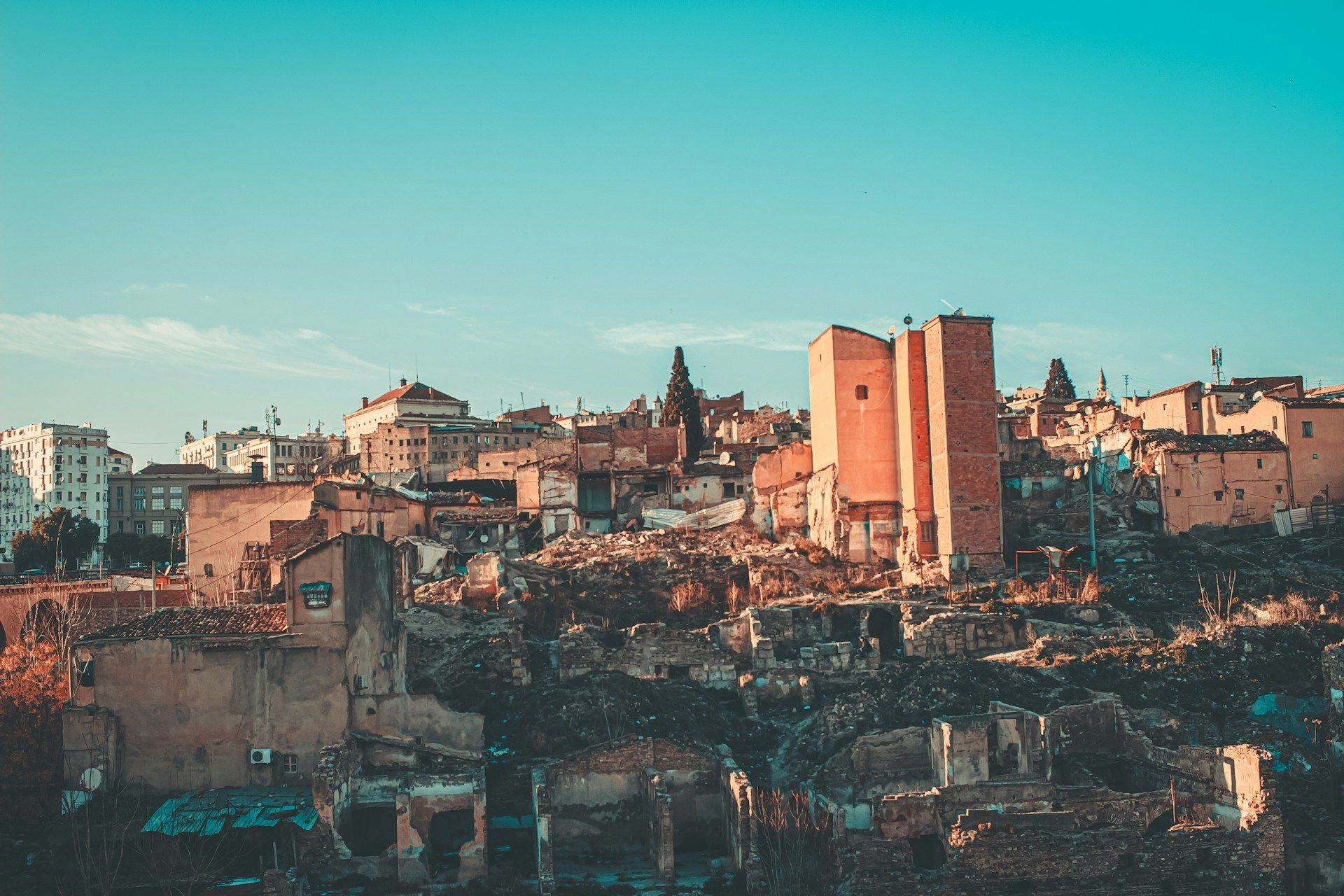Algeria Real Estate for Investment – Opportunities for BuyersSpacious homes in Mediterranean-African mix

Best offers
in Algeria
Popular
cities and regions in Algeria
Benefits of investment in
Algeria real estate
Spacious urban homes at low cost per meter
Major cities like Algiers offer large apartments and houses at prices far below European and Gulf counterparts.
Mediterranean climate with North African charm
Buyers enjoy dry coastal air, warm weather, and proximity to both sea and Sahara landscapes.
State-led development in housing and transport
Infrastructure investments are improving access, roads, and housing stock — especially in new suburban zones.
Spacious urban homes at low cost per meter
Major cities like Algiers offer large apartments and houses at prices far below European and Gulf counterparts.
Mediterranean climate with North African charm
Buyers enjoy dry coastal air, warm weather, and proximity to both sea and Sahara landscapes.
State-led development in housing and transport
Infrastructure investments are improving access, roads, and housing stock — especially in new suburban zones.

Useful articles
and recommendations from experts
Real Estate Investment in Algeria: A Large, Untapped North African Market
Overview: A Transitional Market with Urban Potential
Algeria, the largest country in Africa by landmass, has a complex but potentially rewarding real estate market. Its growing urban population, infrastructure investments, and strategic location on the Mediterranean make it attractive for long-term investors. However, foreign investment in real estate is highly restricted, and the sector remains dominated by domestic buyers. Recent economic reforms and demand for affordable housing may open opportunities for indirect investment or development partnerships.
Property Types and Market Structure
The Algerian real estate market is structured around urban development and state involvement:
- Urban apartments: The majority of sales occur in apartment buildings, especially in Algiers, Oran, and Constantine
- Villas and houses: More expensive and typically located in upscale neighborhoods or suburbs
- Social housing: Provided by the government under subsidized housing schemes like AADL, LPP, and LPA
- Commercial property: Shops and office units in city centers and retail corridors, often sold or rented directly
- Land plots: Regulated and often state-owned; development requires permits and administrative approvals
New housing programs are a major feature of Algeria’s housing policy, with government actively constructing units to reduce shortages. The private sector is gradually playing a larger role in higher-end development.
Legal Framework and Foreign Ownership
Algeria has strict controls on foreign ownership of real estate. Key legal characteristics include:
- Foreigners cannot directly own residential property: Real estate ownership is limited to Algerian citizens or companies with majority local ownership
- Joint ventures: Foreign investors may partner with Algerian companies under a 51/49 rule (local majority ownership) to engage in real estate development
- No open market for international buyers: Unlike Morocco or Tunisia, Algeria has not liberalized residential property sales to foreigners
- Title system: Titles are managed through the Conservateur de la Propriété Foncière; however, bureaucracy and outdated records remain an issue
While direct purchases are restricted, opportunities may exist through development partnerships, construction contracts, or industrial property projects under the investment law.
Prices and Market Dynamics
Prices in Algeria vary by city and property type. Demand remains high, especially among young urban families:
- Algiers (central): USD 1,500–2,500/m² for apartments; up to USD 4,000/m² in Hydra, El Madania, or El Mouradia
- Oran and Constantine: USD 900–1,500/m² in central districts; less in outlying zones
- New housing developments: Often sold at fixed prices by state-backed agencies like AADL or ENPI
Prices are driven by demand–supply mismatch and lack of liquidity in housing construction. Informal sales (without proper registration) still exist, especially in older districts, but formalization is increasing.
Taxes and Transaction Costs
Real estate transactions in Algeria involve several taxes and fees:
- Registration duty: Typically 5% of the declared purchase price
- Notary fees: Around 1%–2%, depending on property value and region
- Stamp duty: Applies to notarized documents; varies by type of transaction
Ongoing taxes include:
- Annual property tax: Assessed based on cadastral value and size
- Rental income tax: Progressive tax rates on income generated from rentals (starting from 7% for residential and up to 35% for commercial)
Despite relatively low official taxes, under-declaration of sale values to reduce fees is still common in informal transactions, though legal reforms are increasing enforcement.
Rental Yields and Demand Drivers
Rental income varies considerably by location and tenant type:
- Residential apartments in Algiers: Monthly rents range from USD 400–1,500; yields of 4%–6% gross
- Commercial spaces: High rental rates in business centers or near universities, but variable occupancy
- Furnished apartments: Demand from expatriates and government staff supports high-end rental market
Rental demand is underpinned by population growth, urbanization, and delays in public housing delivery. However, rent controls and tenant protections limit landlord flexibility.
Investment Scenarios
- Algiers apartment flip: Buy at USD 120,000, renovate, and resell at USD 160,000 within 12–18 months — potential gross profit of 33%
- Rental unit in Oran: USD 80,000 apartment rented at USD 450/month — gross yield of ~6.7%
- Partnership development: Foreign investor forms JV with Algerian firm to build 50-unit complex in Tizi Ouzou — exit through staged sales
Promising Locations
- Algiers: Capital and commercial center; premium districts like Hydra, El Madania, and El Harrach are top targets
- Oran: Port city with growing tourism; new tram system and real estate growth in Akid Lotfi and Hai Sabah
- Constantine: Economic hub in the east; expanding road network and housing programs
- Tlemcen and Annaba: Regional centers with cultural and tourism appeal
Infrastructure projects such as the East-West Highway and new urban transportation systems are enhancing real estate values in many areas.
Risks and Limitations
Investors must be aware of the challenges associated with Algeria’s real estate sector:
- Foreign ownership restrictions: Limit direct participation and require careful structuring
- Regulatory complexity: Bureaucracy and legal inconsistencies can delay projects
- Limited financing options: Mortgages are underdeveloped; most sales are cash-based
- Informal market practices: Under-declaration, unclear title histories, and unlicensed brokers still exist
- Liquidity: Reselling property can be slow, especially outside Algiers
These challenges require careful legal due diligence, local partnerships, and realistic expectations regarding timelines and returns.
Conclusion: High Population, High Potential — but Entry Barriers Remain
Algeria’s real estate sector reflects the country’s broader economic transformation. With a large, young population and infrastructure investments, there is significant long-term demand for housing and urban development. However, foreign investors face regulatory hurdles and ownership restrictions that limit direct participation. For those with local partners and a long-term outlook, Algeria presents opportunities in residential construction, commercial leasing, and structured development — particularly in key urban centers like Algiers and Oran.



